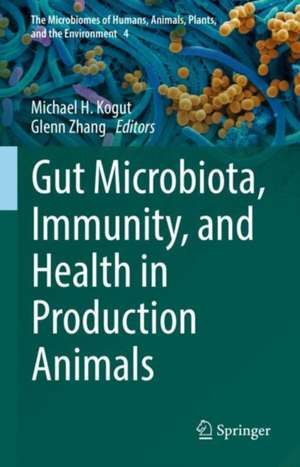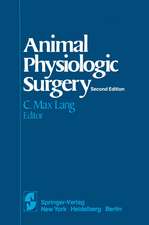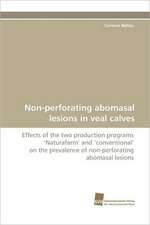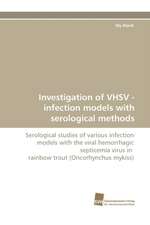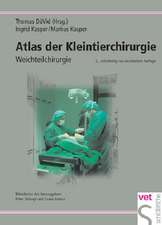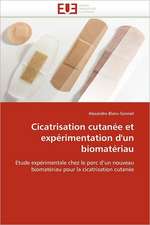Gut Microbiota, Immunity, and Health in Production Animals: The Microbiomes of Humans, Animals, Plants, and the Environment, cartea 4
Editat de Michael H. Kogut, Glenn Zhangen Limba Engleză Hardback – 20 ian 2022
Preț: 1292.67 lei
Preț vechi: 1360.70 lei
-5% Nou
247.35€ • 258.95$ • 204.67£
Carte tipărită la comandă
Livrare economică 07-21 aprilie
Specificații
ISBN-10: 3030903028
Pagini: 325
Ilustrații: VII, 325 p. 11 illus., 8 illus. in color.
Dimensiuni: 155 x 235 mm
Greutate: 0.64 kg
Ediția:1st ed. 2022
Editura: Springer International Publishing
Colecția Springer
Seria The Microbiomes of Humans, Animals, Plants, and the Environment
Locul publicării:Cham, Switzerland
Cuprins
See attachments
Notă biografică
Dr. Michael Kogut is a Research Microbiologist and Lead Scientist at the Southern Plains Agricultural Research Center, College Station, TX. He received his Ph.D. in Poultry Science from the University of Georgia. Dr. Kogut has published over 200 peer-reviewed scientific papers, 11 book chapters, and has received 5 patents. Dr. Kogut’s research has concentrated on the development of cost-effective immunological interventions to improve gut health by studying the role of the microbiota in immunity to infection; the role of dietary metabolites in promoting immune regulation and immune responses to pathogens; characterizing novel molecular targets that mediate the actions of dietary compounds in inflammation and immunity; and understanding the integration of central metabolic pathways and nutrient sensing with antimicrobial immunity.
Glenn Zhang is currently a professor and Boulware Endowed Chair in the Department of Animal and Food Sciences at Oklahoma State University. He received his Ph.D. in immunophysiology from Kansas State University and did postdoc work in molecular immunology at Yale Medical School. He has been working on the modulation of animal innate immunity and gut microbiota, with the long-term goal of developing effective strategies to achieve optimal animal health and production efficiency without relying on antibiotics. He has published more than 80 peer-reviewed papers and six book chapters on his research. He has also edited multiple special issues on gut health, gut microbiota, and alternatives to antibiotics for various scientific journals.
Textul de pe ultima copertă
This work sheds new light on the interplay between the gut, gut microbiota, and host physiological processes in production animals.
Caracteristici
Examines the main livestock species swine, cattle and poultry
With key expert contributions on the microbiota-gut-brain-axis, the gut mycobiome, and psychobiotic stress regulation
Descriere
